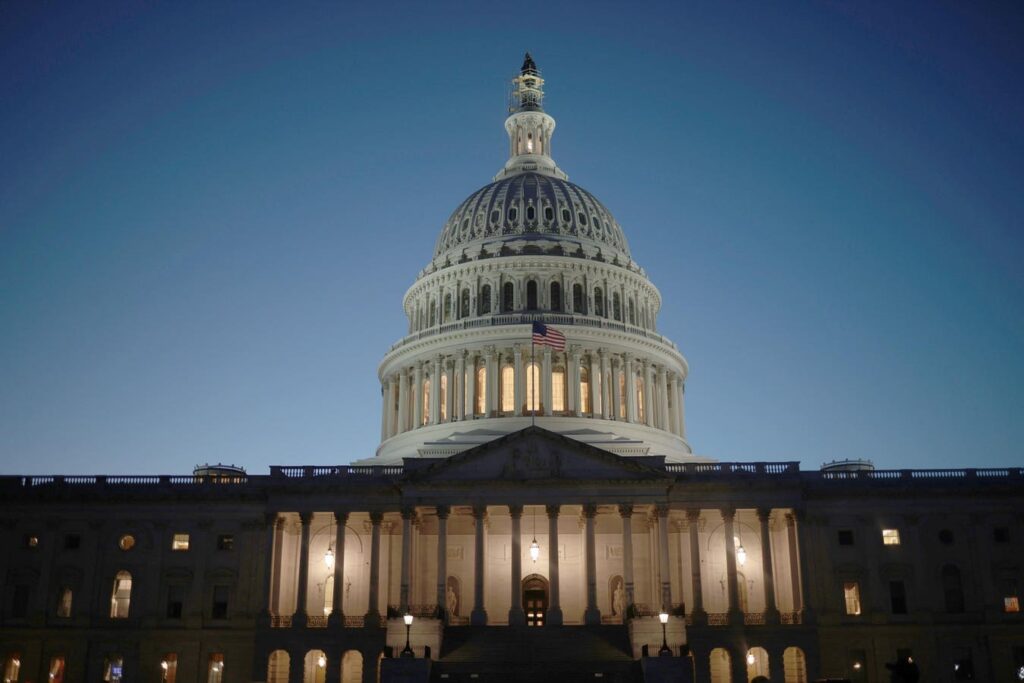Removing The Tax On Sex Abuse Victims
Survivors of sexual abuse have long faced an unjust burden: taxation of their financial recoveries. Bipartisan legislation was recently introduced to change that. Representatives Lloyd Smucker (R-Pa.) and Gwen Moore (D-Wis.) introduced the Survivor Justice Tax Prevention Act, which would exempt from tax most financial recoveries for sexual assault and sexual abuse.
The House GOP is in the midst of proposing a sweeping tax and spending package, with significant haggling to be had. Narrow policy changes may make it in, but the priority seems to be the extension of soon-to-expire provisions from the 2017 Tax Cuts and Jobs Act. If the Survivor Justice Tax Prevention Act doesn’t become law this round, it might be incorporated into a “technical corrections” bill soon after.
It would certainly remove an unfairness that many have talked about, including a Bloomberg Tax piece I co-authored, as well as the presidents of the Society of Settlement Planners, the American Association of Settlement Consultants, and the National Structured Settlements Trade Association. The AASC has made it a centerpiece of its policy work.
Lawyers for sexual abuse survivors also support the change. Trial lawyer Genie Harrison recovered for victims of Harvey Weinstein. She says, “Survivors deserve full justice, not a second round of trauma at the hands of the tax code.”
Trial lawyer Mike Arias helped secure an $852 million settlement for sexually abused students in a case against University of Southern California and Dr. George Tyndall. “Ridiculous,” he calls the current law. “It’s like treating their recovery as income gained for enduring pain and anguish they suffered from the sexual assault.”
Taxing Settlements For Sexual Abuse Survivors
Since 1996, federal law has exempted settlements and awards from taxation if received “on account of personal physical injuries or physical sickness.” While the rule itself is broadly written, the IRS has historically interpreted physical injuries narrowly, looking for visible harm to qualify for tax-free treatment.
The problem is obvious: many forms of sexual abuse leave no visible injuries. Survivors often suffer profound psychological, emotional, and internal injuries without visible marks—injuries that may never be documented or may have healed long ago.
As plaintiff lawyers know firsthand, uncertainty and unfair taxation make the fight for justice more difficult. Shahrad Milanfar recently won a $32 million verdict for elder abuse. He talked through the difficulty that current law creates, “Explaining to a plaintiff that they’re going to be taxed when recovering money for what was taken from them is terrible. But they need to know early on in the process so they can plan for it.”
The consequences are discussed often by professionals working in the area. For example, it was publicly raised in articles about sexual abuse survivors of Dr. Larry Nassar, the former physician of the USA Gymnastics Team.
The Survivor Justice Tax Prevention Act
The Survivor Justice Tax Prevention Act offers a targeted fix. It expressly excludes from taxable income most damages recovered by a survivor of sexual assault or abuse. Whether through judgment, settlement, or award, the recovery would be tax-free.
Importantly, the legislation avoids the ambiguity that has plagued plaintiffs and their counsel under current law. Instead of relying on the problematic “physical injury” standard, the bill ties tax exemption directly to the federal criminal code’s definitions of “sexual act” and “sexual contact.” These federal definitions eliminate the guesswork survivors and lawyers have been forced to face when assessing tax exposure. And what’s more, the legislation explicitly allows such tax treatment even if there are no “medical records of such act or contact.”
The bill also mandates an IRS public awareness campaign so that survivors, lawyers, and the broader public will learn of the exclusion. Clarity in the law is meaningless if those it protects never hear about it.
The need for reform is not a new revelation; it’s a longstanding demand for fairness in a system that too often compounds the harms that survivors already face.
A Critical Shift Toward Justice
The Survivor Justice Tax Prevention Act finally closes a longstanding gap—protecting sex abuse survivor recoveries without forcing survivors into tax uncertainty or conflict.
Plaintiff lawyer Kevin Biniazan secured a $360 million verdict last year against a hospital for sexual abuse disguised as medical treatment. Says Biniazan, “This is yet another necessary step, albeit long overdue, in the right direction towards a legal system that recognizes and protects the rights and interests of survivors of sexual abuse.”
Read the full article here

